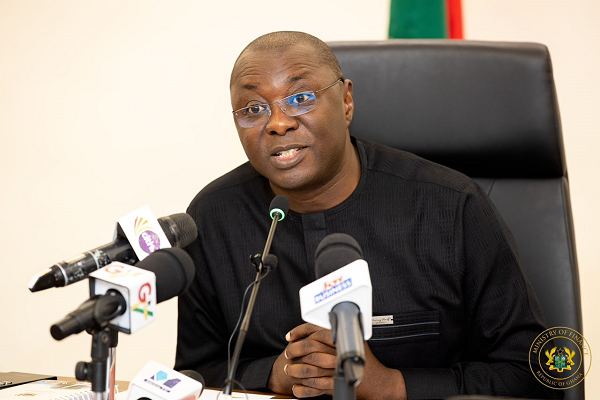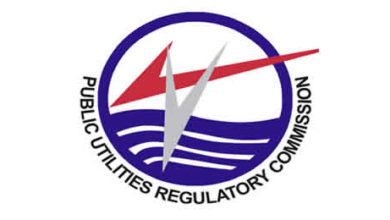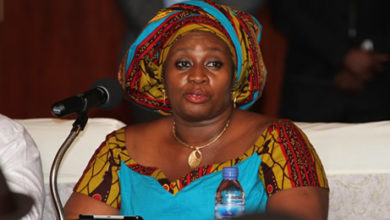Worrying Times At EC – Governance Experts Want Action Now
Political pundits are questioning the readiness of the Electoral Commission (EC) to successfully conduct the expected referendum on the creation of new regions between October and December this year, as well as the district level and the general elections this year and in 2020, respectively.
For some time now, the seeming inactivity of the country’s election management body has raised a lot of eyebrows as to when the commission will bounce back to normalcy.
The Daily Graphic learnt, during a visit to the Headquarters of the EC last Friday, that since February last year when the full membership of the commission met, there had not been any such meeting of the entire commission.
Information available to the Daily Graphic indicates that the chairperson has sent some memos inviting the commissioners to a meeting, but some of them declined due to the perceived disagreements among the three executive commissioners.
Governance experts/Review of structure
Some governance experts have told the Daily Graphic in separate interviews that what is going on among the three top commission members at the EC is most disturbing.
In their view, since the work of the three topmost commissioners borders on policy, it will be most unfortunate if they cannot see eye to eye with one another and work together as a unit commission.
None of the experts would blame the Chairperson, Mrs Charlotte Osei and rather stressed the need for the Judicial Committee investigating the three commissioners to expedite action on the work.
They called for a review of the governing structure of the EC, such that in the event of a similar occurrence in future, work would not stall.
The Minister for Regional Reorganisation and Development, Mr Dan Kweku Botwe, said the ministry held a fruitful deliberation with the commission last Wednesday on the latter’s election management plans, particularly with focus on the referendum for the creation of new regions.
He disclosed that the EC pledged to fulfill all its mandates successfully if the government approved funding for all the national assignments.
The EC must organise a referendum when recommendations are made to the chairperson by collating views on the creation, alteration and merging of regions, in accordance with Article 5(5) of the 1992 Constitution.
Last Thursday, the members of the EC were also expected to meet to approve their logistical proposals and present them to the Public Procurement Authority (PPA). However, the Daily Graphic learnt that Alhaji Amadu Sulley, the Deputy Chair in charge of Operations, disapproved of the meeting.
A memo by Mr Sulley on the subject: “Commission Meeting” to Mrs Osei and copied to commission members, a copy of which the Daily Graphic has, said his (Mr Sulley’s) attention had been drawn to an email purportedly emanating from the EC Chair inviting commission members to a meeting on May 31, 2018.
The reason, according to Mr Sulley’s memo, was that the meeting had become necessary following the completion of hearing for the impeachment process against the three commission members.
That, he said, could not be true and that not until a final decision had been reached by the Committee of Enquiry, the process could not be over.
“Till date, I have neither been notified nor seen any correspondence that the Economic and Organised Crime Office (EOCO) has rescinded its decision to suspend an independent constitutional body like the EC from holding its meeting. I do not know, however, whether EOCO has now directed you to go ahead to call for commission meeting,” he stated in the memo.
When contacted, the Communications Director at the EC, Mr Eric Dzakpasu, said the commission was working hard behind the scenes.
He said he was optimistic that the Judicial Committee investigating issues at the commission was at a terminal stage and work at the commission would fully bounce back.
Interviews
The Deputy Director of the Ghana Centre for Democratic Governance (CDD-Ghana), Dr Franklin Oduro, urged the country to take a second look at the governing structure of the EC to ensure continuity in functions in the absence of any of the executive commissioners.
He said work at the EC did not have to stop whenever there was an investigation into the conduct of the executive commissioners.
As is the case now, citizens are concerned because they cannot access any service from the commission.
Dr Oduro, who is also the Head of Research and Programmes at the CDD, said a second look at the governing structure was imperative after the conclusion of the judicial probe.
Another critical thing to focus on after the probe, he added, were guidelines on investigations by the Judiciary into the affairs of independent constitutional organisations.
He said that could give the public an idea of the processes to follow and how long such investigations could take.
He attributed public complaints about the length of time the investigations were taking to the dearth of information on the processes involved in the investigations and added that it was critical for that situation to be reviewed by the Judiciary to bring out guidelines on such investigations.
Source: Graphic.com





